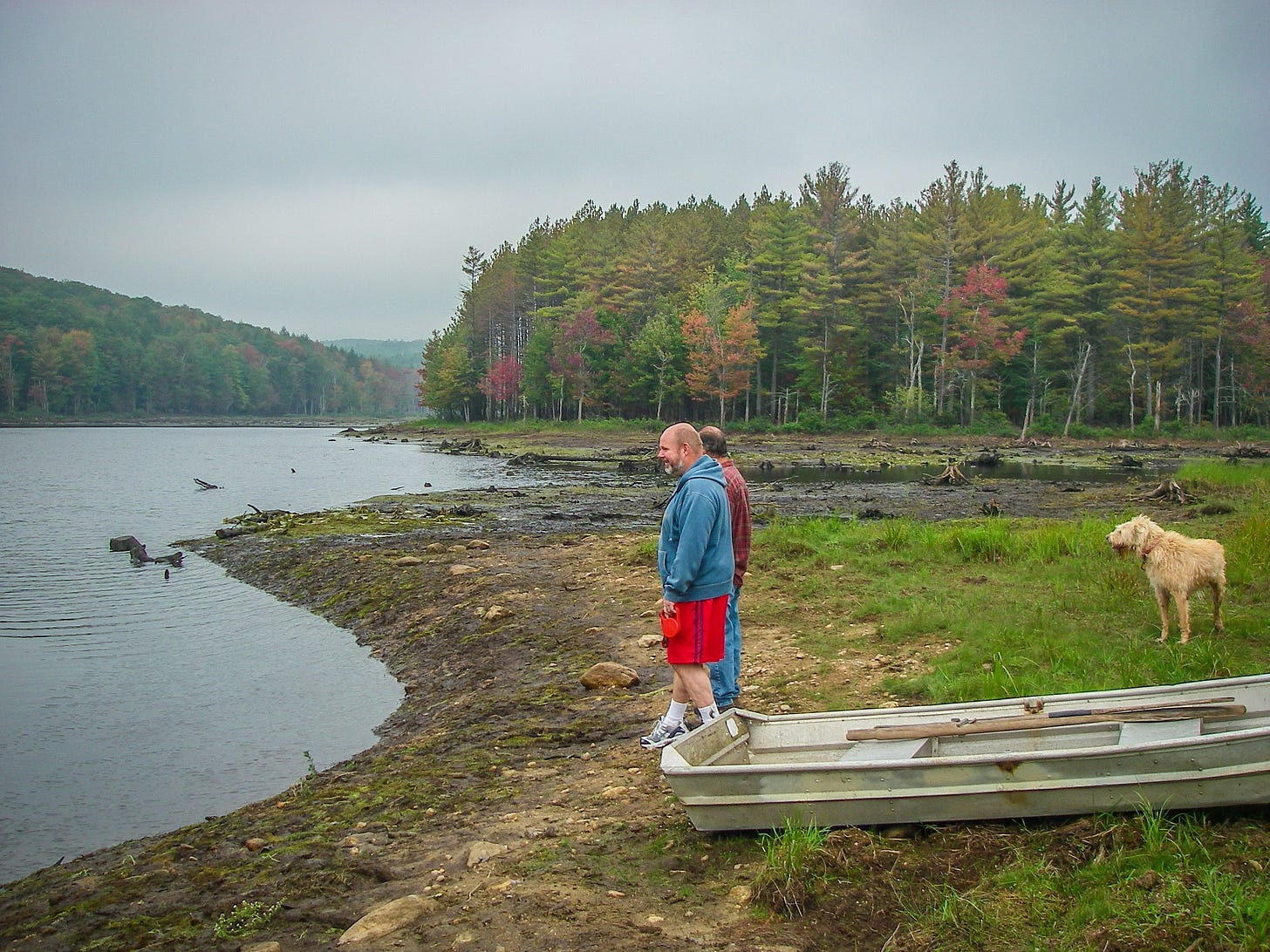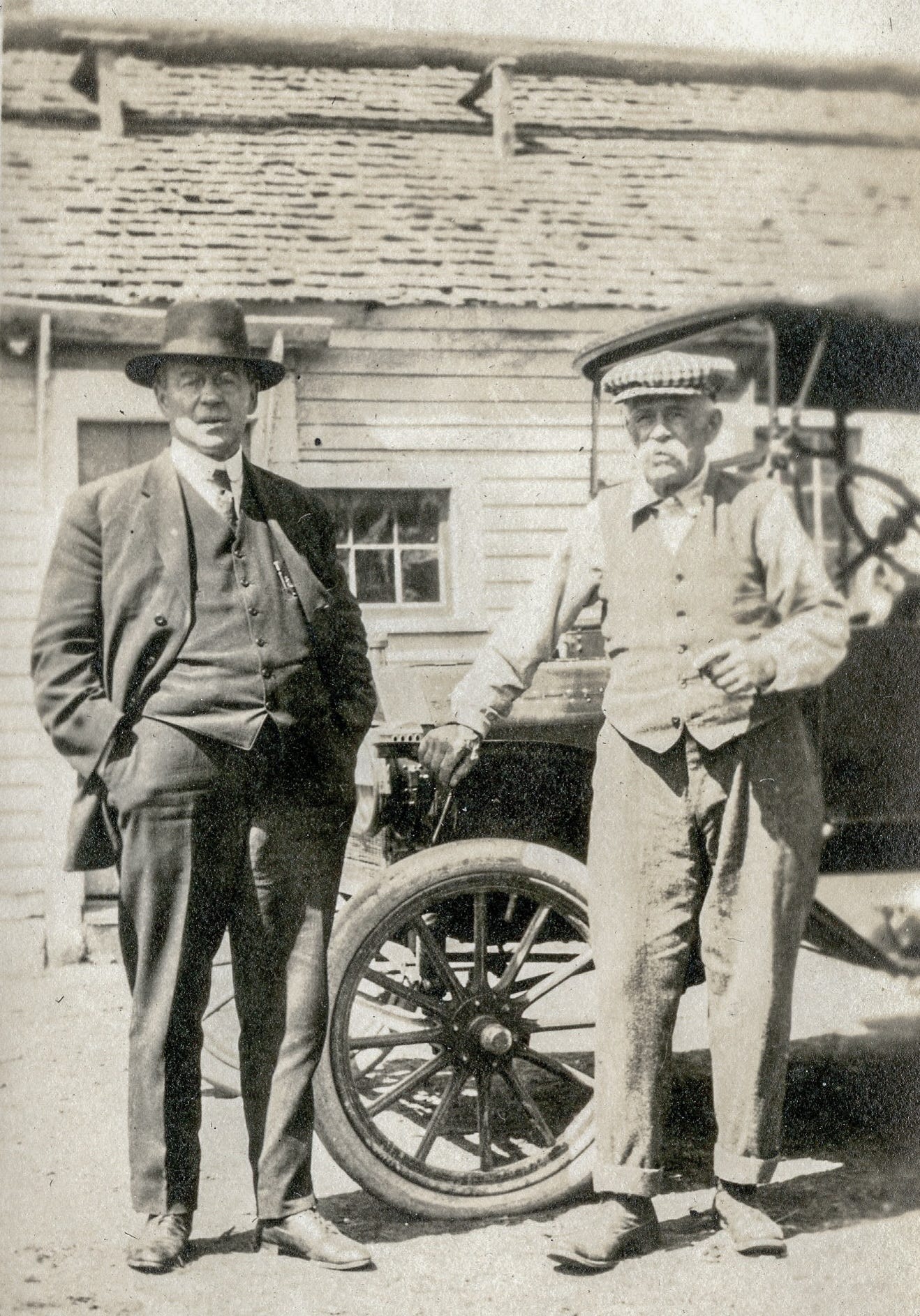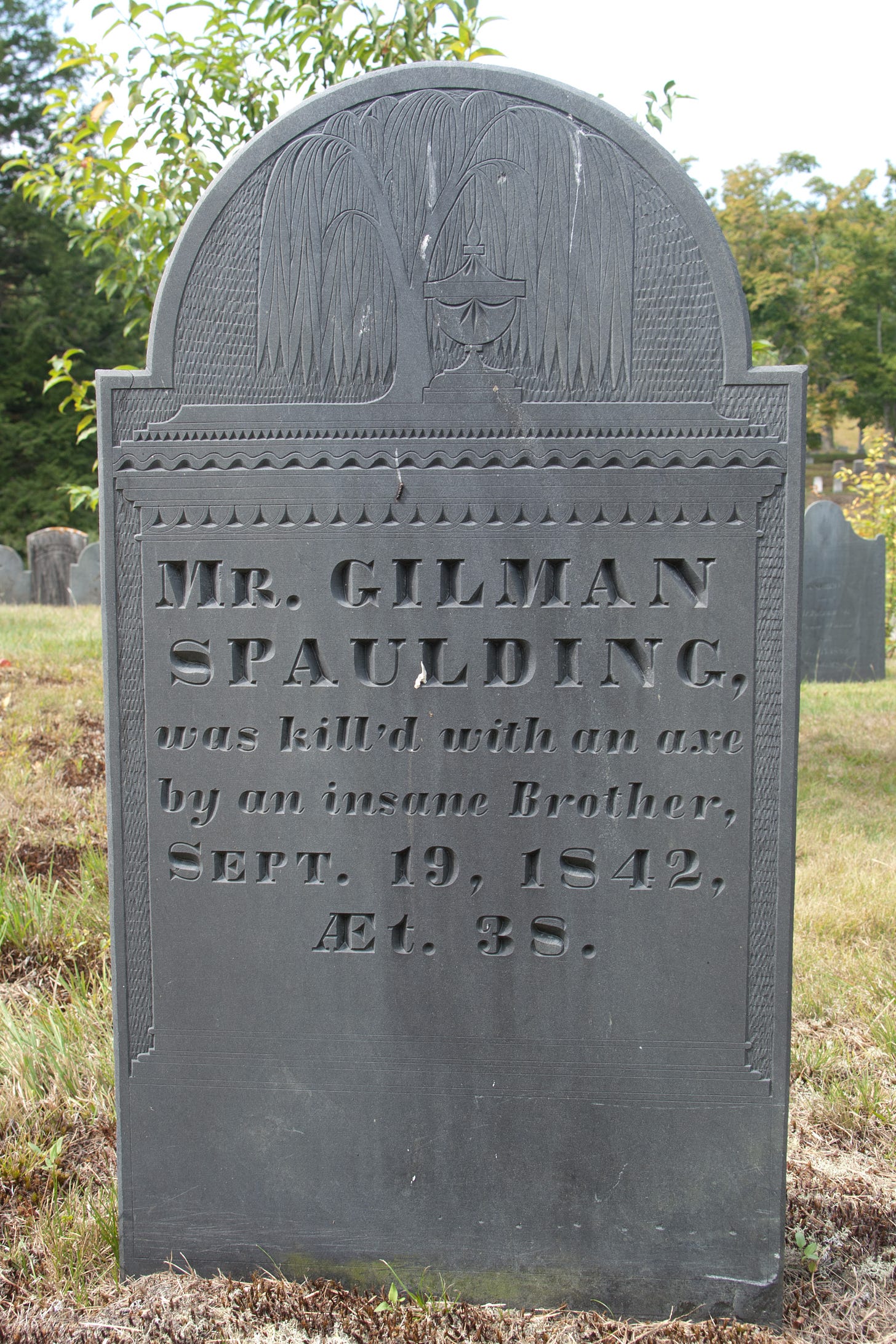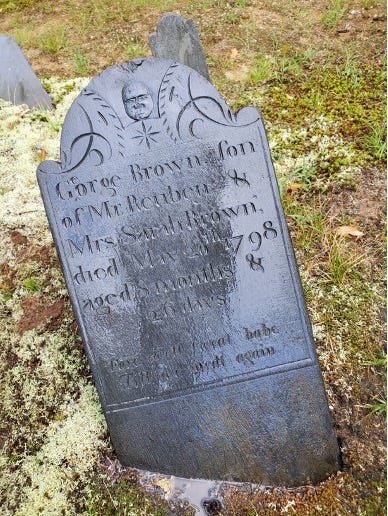On this day - September 19, 1842
Gilman Spaulding was killed by his insane brother.
On this day - September 19, 1897
William Jurian Kaula diary - Happy Birthday
This is my twenty-sixth anniversary. The sun shone with so much unusal [sic] splendor and brilliancy - which after a rainy week, was most welcome for our day of rest. My enthusiasm over cloud scenery prompted me to take a bicycle ride in the forenoon with Cartwright. The highways dry very quickly even after a very heavy rain but the small roads are not so hard and well kept. We thought that we encountered much mud after ascending the steep hills beyond Dammatin and it took so much of our attention to find good places in the roads that I do not remember much that is in favor of the various villages along the route. Mud? When we had cleared all the villages and were a mile or two from shelter, a fierce hail storm broke forth - so dense were the falling hail-stones that it resembled a perfect snow storm. We hid in some bushes until it was over and there started for Crécy - it was no use to wait as the roads would not dry for hours and I had not traveled more than a hundred feet before I realized that we would be converted into two mud images. The water and mud rained all over us like a continuous fountain from both the wheels of the bicycles. When we reached Hotel Poulain we were so concealed under a layer of mud that it was impossible to tell whether I had on shoes or stockings and my new cordoroy [sic] trousers looked ruinded forever. Each of us had a huge squirril [sic] tail of mud running up our backs and on our hair and even on the tops of our caps.
There were many surprises for me at déjun in the way of small presents that came in packages, one with almost every course. I had advertised my birthday previously and asked to be presented with a pipe and hoped that the American colony would appreciate this golden opportunity. As it was I received two - one which I cannot smoke as I am afraid it would destroy the inscription which is burned on the bowl. Furthermore I had possesed [sic] a miserable and useless pocket-knife which always aggravated the one who borrowed it. I received a new one. Also a purse - not one that can be used owing to the inscription painted on its blue plush sides. We live exceedingly well at Poulain's and when Madame provided a much better dinner in the evening that is saying a good deal.
Note: déjun = lunch
On this day - September 19, 1908
James Roger diary entry
19th (Saturday)
Cool morning fine day with north wind which cleared away the smoke which has filled the valley all week. Brush fire in Temple district in the afternoon. David lifted the rest of the potatoes today. I gathered them in the afternoon, and we brought them in 19 bushels. About 50 bushels altogether. I picked 3 fowls and one for Mrs. Amee. David gone to Depot tonight to meet Hamish who came at 6 pm all well.
On this day - September 19, 2006
Low tide
Receding water level at Smithville Reservoir

Gravestone Mysteries
THE BROWN BABIES - Part II
by Kim Black
Sept 2022
So...we have determined that the Brown siblings "assumption" was all wrong. The babies had different parents and were different ages (8 months and 7 months) in May of 1798. Is it safe to assume they were cousins? Perhaps...since they both lived in New Ipswich and died the same month.
When babies are lost to early American families, there is little-to-no information available about those infants. The only way to add context and depth to that baby's life is to find out about the parents, the siblings and, if lucky, the grandparents. After all, they are the survivors of the tragedy. Also, researching potential historic events for the town, state, or the nation during that time period may prove helpful. In this instance, it's plausible the babies died of a shared sickness; George on May 20th and Aaron on May 22nd. Sure enough, further research revealed some interesting information about these boys' families.
GEORGE:
Baby George's parents were Reuben and Sarah (Brown) Brown, farmers. George was the 2nd baby of 11 children. Two short years after George's death, in 1800, Reuben moved the family to Whitingham, VT, then went up to Canada for an unknown period, and finally settled and ultimately died in Calcium, Jefferson Co., NY.
Little George's paternal grandparents were John and Elizabeth (Bateman) Brown. They started a farm within the original Lot 62 - North Division of New Ipswich - it's northwest corner between Kidder and Barrett Mountains. They came to New Ipswich from Concord, MA, in the 1760s, and settled in this very primitive and forested area of the town. Predatory wildlife was always a concern, land in that section still needed clearing, and it was probably a very difficult endeavor to be a productive farmer there.
AARON JR.:
Little Aaron's parents were Aaron Sr. and Hannah (Brown) Brown, also farmers. Baby Aaron was the 2nd child of six. Aaron Sr. farmed his in-laws place - John & Elizabeth (Bateman) Brown's farm mentioned above. He was also the Deacon of the Baptist Church. Once the Turnpike was established, Aaron Sr. kept a store as well.
Baby Aaron's paternal grandparents were Josiah and Sarah (Wright) Brown. Josiah and Sarah came to New Ipswich from Concord, MA, right after their marriage in 1765. They settled on Flat Mountain (Lot 62, North Division) right next to Josiah's brother, John Brown. He was one of the original organizers of the Baptist Church and its first Deacon. Josiah also served as 1st Lieutenant at Bunker Hill in Capt. Ezra Town's Company during the Revolutionary War. An interesting factoid(?) about Josiah is he "believed he fired the last gun before the retreat" at Bunker Hill.
The research on these two families proved to be a bit challenging! Why did both mothers of little George and Aaron Jr. have maiden names of Brown? It's a common enough surname; however, New Ipswich was likely too rural to contain the same surname and not be related. So, research continued. Here is the result:
1. Reuben (Little George's father) and Hannah (Young Aaron's mother) were siblings; children of John & Elizabeth (Bateman) Brown, grandchildren of elder John Brown.
2. Aaron Sr. (Aaron Jr's father) and Sarah (George's mother) were siblings; children of Josiah & Sarah (Wright) Brown, grandchildren of elder John Brown. If it's helpful, make a diagram for yourself to provide visual aid.
All four of the Brown babies' parents were not only cousins but shared the same paternal grandparents. The Brown babies' parents were known as "patrilateral cross cousins" as they were all related through the fathers' side of the family (John and Josiah were sibs). This is uncommon in today's world (approx. 10% of marriages involve cousins with some regions of the world as high as 50%); however, prior to the late 19th century it was quite common. Rural geographic areas were even more likely to see cousins marry because they didn't travel as far as urban populations did. Changing social norms and the onset of mass railroad travel may have influenced a decrease in relational marriages. Globally, social norms have changed dramatically over the course of history. Some beliefs and practices have become more relaxed and some more constrained. When researching history, one must remember to place your discoveries in context - what was typical during that period, how were things changing at the time, were political and religious beliefs in flux, were changes happening across the country or confined to specific regions.
Regarding cause of death, records were found indicating the boys' names, death dates, parents, location, etc. However, no cause of death was noted. Town historical records do not mention a specific event related to illness but we know that contagious disease regularly raged through the New England states in the early days due to lack of hygiene (simple hand-washing, etc.) as well as primitive and sometimes non-existent medical treatment. The deaths being two days apart seem too coincidental to not be a contagious illness or a shared accident, i.e. a fall. My vote is illness. These two families lived next to each other and probably shared many of their day-to-day activities. The women likely shared child-rearing and homemaking duties providing ample opportunity for sharing germs.
So...once again, the simple act of cleaning gravestones was very gratifying AND revealed an interesting piece of history - arguably unknown to today's New Ipswich residents. Please stay tuned for more Historical Society "Gravestone Mysteries." Who knows what secrets await? If you have interesting or quirky knowledge or family lore about your New Ipswich ancestors, please consider sharing as everyone loves a good story.
Sources:
The History of New Ipswich, 1735-1914 by Charles Henry Chandler, published 1914 by Sentinel Printing
Co., Fitchburg, MA
The History of New Ipswich, from Its First Grant in 1736 to the Present Time, by Augustus Addison Gould, Kessinger Publishing, originally published 1852
Patrilateral Cousins - Wikipedia
"When Did Americans Stop Marrying Their Cousins?," Steph Yin, NY Times, March 1, 2018
"The Surprising Truth About Cousins and Marriage," Insider, February 14, 2014
"When Did Cousin Marriage Become Unacceptable," HistoryNet, January 24, 2017





